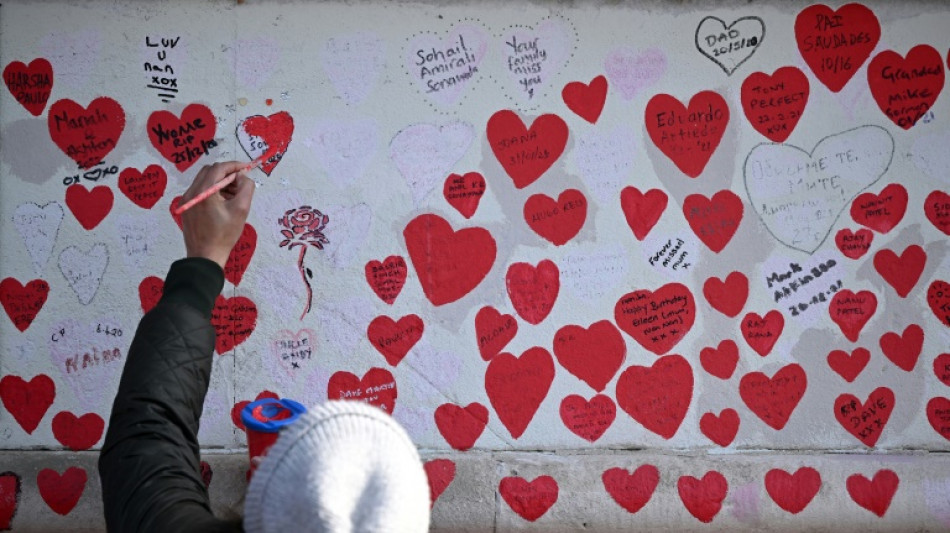
-
 Trump's Christmas gospel: bombs, blessings and blame
Trump's Christmas gospel: bombs, blessings and blame
-
Russia lashes out at Zelensky ahead of new Trump meeting on Ukraine plan

-
 Salah helps Egypt beat South Africa and book last-16 place
Salah helps Egypt beat South Africa and book last-16 place
-
Australia's Ikitau facing lengthy lay-off after shoulder injury

-
 Another 1,100 refugees cross into Mauritania from Mali: UN
Another 1,100 refugees cross into Mauritania from Mali: UN
-
Guardiola proud of Man City players' response to weighty issues

-
 Deadly blast hits mosque in Alawite area of Syria's Homs
Deadly blast hits mosque in Alawite area of Syria's Homs
-
The Jukebox Man on song as Redknapp records 'dream' King George win

-
 Liverpool boss Slot says Ekitike reaping rewards for greater physicality
Liverpool boss Slot says Ekitike reaping rewards for greater physicality
-
Judge jails ex-Malaysian PM Najib for 15 more years after new graft conviction

-
 Musona rescues Zimbabwe in AFCON draw with Angola
Musona rescues Zimbabwe in AFCON draw with Angola
-
Zelensky to meet Trump in Florida on Sunday

-
 'Personality' the key for Celtic boss Nancy when it comes to new signings
'Personality' the key for Celtic boss Nancy when it comes to new signings
-
Arteta eager to avoid repeat of Rice red card against Brighton

-
 Nigeria signals more strikes likely in 'joint' US operations
Nigeria signals more strikes likely in 'joint' US operations
-
Malaysia's former PM Najib convicted in 1MDB graft trial

-
 Elusive wild cat feared extinct rediscovered in Thailand
Elusive wild cat feared extinct rediscovered in Thailand
-
Japan govt approves record budget, including for defence

-
 Seoul to ease access to North Korean newspaper
Seoul to ease access to North Korean newspaper
-
History-maker Tongue wants more of the same from England attack

-
 Australia lead England by 46 after 20 wickets fall on crazy day at MCG
Australia lead England by 46 after 20 wickets fall on crazy day at MCG
-
Asia markets edge up as precious metals surge

-
 Twenty wickets fall on day one as Australia gain edge in 4th Ashes Test
Twenty wickets fall on day one as Australia gain edge in 4th Ashes Test
-
'No winner': Kosovo snap poll unlikely to end damaging deadlock

-
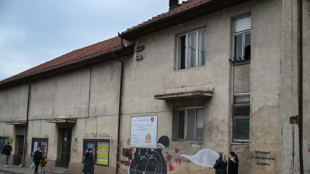 Culture being strangled by Kosovo's political crisis
Culture being strangled by Kosovo's political crisis
-
Main contenders in Kosovo's snap election
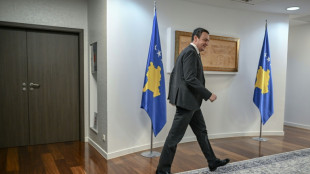
-
 Australia all out for 152 as England take charge of 4th Ashes Test
Australia all out for 152 as England take charge of 4th Ashes Test
-
Boys recount 'torment' at hands of armed rebels in DR Congo

-
 Inside Chernobyl, Ukraine scrambles to repair radiation shield
Inside Chernobyl, Ukraine scrambles to repair radiation shield
-
Bondi victims honoured as Sydney-Hobart race sets sail

-
 North Korea's Kim orders factories to make more missiles in 2026
North Korea's Kim orders factories to make more missiles in 2026
-
Palladino's Atalanta on the up as Serie A leaders Inter visit

-
 Hooked on the claw: how crane games conquered Japan's arcades
Hooked on the claw: how crane games conquered Japan's arcades
-
Shanghai's elderly waltz back to the past at lunchtime dance halls

-
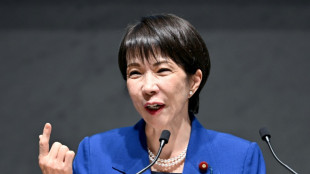 Japan govt approves record 122 trillion yen budget
Japan govt approves record 122 trillion yen budget
-
US launches Christmas Day strikes on IS targets in Nigeria

-
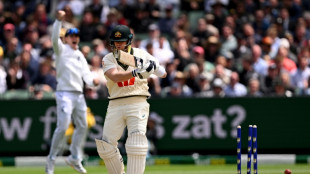 Australia reeling on 72-4 at lunch as England strike in 4th Ashes Test
Australia reeling on 72-4 at lunch as England strike in 4th Ashes Test
-
Too hot to handle? Searing heat looming over 2026 World Cup

-
 Packers clinch NFL playoff spot as Lions lose to Vikings
Packers clinch NFL playoff spot as Lions lose to Vikings
-
Guinea's presidential candidates hold final rallies before Sunday's vote

-
 President Trump's Executive Marijuana Action Exposes the Truth-How the DEA Delayed Medicine While Protecting Everything Else
President Trump's Executive Marijuana Action Exposes the Truth-How the DEA Delayed Medicine While Protecting Everything Else
-
Calvin B. Taylor Bankshares, Inc. Reports Third Quarter Financial Results and Announces New Stock Repurchase Program

-
 Processa Pharmaceuticals and 60 Degrees Pharmaceuticals Interviews to Air on the RedChip Small Stocks, Big Money(TM) Show on Bloomberg TV
Processa Pharmaceuticals and 60 Degrees Pharmaceuticals Interviews to Air on the RedChip Small Stocks, Big Money(TM) Show on Bloomberg TV
-
Aptevo Therapeutics Announces 1-for-18 Reverse Stock Split

-
 Loar Holdings Inc. Announced The Completion of its Acquisition of LMB Fans & Motors
Loar Holdings Inc. Announced The Completion of its Acquisition of LMB Fans & Motors
-
IRS Can Freeze Installment Agreements After Missed Filings - Clear Start Tax Explains Why Compliance Comes First
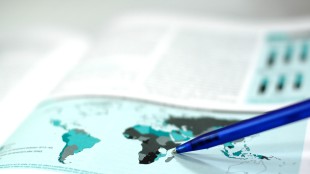
-
 How the Terms of SMX's $111 Million Capital Facility Shape the Valuation Discussion
How the Terms of SMX's $111 Million Capital Facility Shape the Valuation Discussion
-
A Christmas Message to the DEA's Diversion Anti Marijuana Cabal

-
 QAT Community Sets QuantumTrade 5.0 for Public Beta Testing in March 2026
QAT Community Sets QuantumTrade 5.0 for Public Beta Testing in March 2026
-
BondwithPet Expands B2B Offering with Custom Pet Memorial Product


World facing last chance to keep pandemic accord alive
Countries thrashing out a historic agreement on tackling future pandemics have one month to bridge their differences because failure cannot be an option, the negotiations co-chair told AFP.
Nations have spent the last two years drafting an international accord on pandemic prevention, preparedness and response, but remain far apart on crucial issues such as vaccine equity and pathogen surveillance.
The planned final round of negotiations therefore missed the target of finishing the accord by Easter, so it would be ready for adoption by the World Health Organization's 194 member states at their annual assembly starting on May 27.
Countries will instead return to the WHO headquarters in Geneva for a do-or-die extra round of talks from April 29 to May 10.
Roland Driece, who is co-chairing the negotiations, wants nations to use the time between now and then to find compromises.
"We want them to speak with each other, and not at each other," the Dutch health diplomat told AFP.
"You need to bridge your differences."
The main sticking points include sharing access to emerging pathogens, better monitoring of disease outbreaks, reliable financing, and transferring pandemic-fighting technology to poorer countries.
Sharpening minds ahead of the April-May talks, several countries have raised the spectre of another Covid-19, which shredded economies, crippled health systems and killed millions.
"Everybody understands that failure is not really an option," said Driece.
"It's our duty to keep the focus and the urgency."
- Give and take -
WHO chief Tedros Adhanom Ghebreyesus on Wednesday insisted that states were still committed to reaching a deal before the assembly.
"I think by the time they come back (in late April), they will be ready to give and take," he told a press conference.
"Our understanding is... there could be a deal. That's what we expect."
Driece's Intergovernmental Negotiating Body (INB) will draw up a streamlined new draft text by April 18, honing in on areas of common ground.
One European ambassador, frustrated by the process, said success would depend on getting a concise, convergence-oriented document to work from.
"It is about giving the right impulses for better prevention, preparedness and response. It's not about going into the deepest details on some sort of mechanism," the diplomat told AFP, on condition of anonymity.
Jaouad Mahjour, head of the WHO secretariat to the INB, on Wednesday voiced optimism that "in the next meeting, the member states will get there".
He said the INB bureau would concentrate on the main things to "agree on now, and maybe reflect on issues that need further work after" the May deadline.
- Fears of empty shell deal -
But some NGOs attending the talks fear a bare-bones revised draft will fudge all the tricky topics -- and leave the world no less vulnerable to pandemics.
An example would be "mentioning equity, but without the measures" to make it happen, Mohga Kamal-Yanni of the People's Vaccine Alliance told AFP.
She said rich countries were not offering the financial support for ramped-up pathogen surveillance, nor firm commitments on technology transfer even for publicly funded products or intellectual property rights waivers on tools like vaccines.
"What's left? Maintaining the unequal status that led to what happened during Covid, and before that with HIV," she said.
The United States on Friday said it was committed to concluding an ambitious accord.
- 'We will not give up' -
Alongside the African group, the 31-country Group for Equity has thus far held firm in trying to ensure developing countries are not cut adrift again.
The group wants granting access to pathogens with pandemic potential to be on a clear equal footing with receiving equitable, fair and rapid sharing of the benefits.
"A treaty with mere political rhetoric cannot be an outcome of this process," Indonesia said on behalf of the group.
Mexico said it was concerned by the "limited progress", while the Philippines said the talks had to acknowledge they were not succeeding.
Colombia's negotiator said any agreement "must avoid a complete and general collapse of solidarity".
K. M. Gopakumar, senior researcher with the Third World Network NGO, told AFP that the talks' process started with equity promised at the heart of everything but that "politics overtook the noble ambitions".
J.Williams--AMWN



